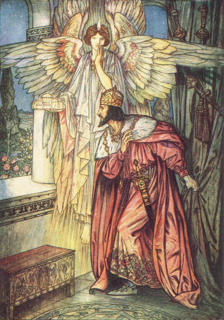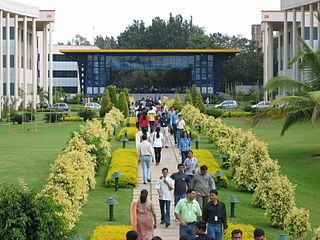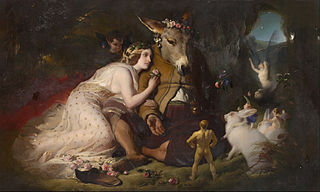 W
WCreativity is a phenomenon whereby something new and valuable is formed. The created item may be intangible or a physical object.
 W
WInspiration is an unconscious burst of creativity in a literary, musical, or visual art and other artistic endeavours. The concept has origins in both Hellenism and Hebraism. The Greeks believed that inspiration or "enthusiasm" came from the muses, as well as the gods Apollo and Dionysus. Similarly, in the Ancient Norse religions, inspiration derives from the gods, such as Odin. Inspiration is also a divine matter in Hebrew poetics. In the Book of Amos the prophet speaks of being overwhelmed by God's voice and compelled to speak. In Christianity, inspiration is a gift of the Holy Spirit.
 W
WConceptual economy is a term describing the contribution of creativity, innovation, and design skills to economic competitiveness, especially in the global context.
 W
WLinks between creativity and mental health have been extensively discussed and studied by psychologists and other researchers for centuries. Parallels can be drawn to connect creativity to major mental disorders including bipolar disorder, schizophrenia, major depressive disorder, anxiety disorder, OCD and ADHD. For example, studies have demonstrated correlations between creative occupations and people living with mental illness. There are cases that support the idea that mental illness can aid in creativity, but it is also generally agreed that mental illness does not have to be present for creativity to exist.
 W
WAn egg of Columbus or Columbus' egg refers to a brilliant idea or discovery that seems simple or easy after the fact. The expression refers to an apocryphal story, dating from at least the 16th century, in which it is said that Christopher Columbus, having been told that finding a new trade route was inevitable and no great accomplishment, challenges his critics to make an egg stand on its tip. After his challengers give up, Columbus does it himself by tapping the egg on the table to flatten its tip.
 W
WIn common usage and in philosophy, ideas are the results of thought. Also in philosophy, ideas can also be mental representational images of some object. Many philosophers have considered ideas to be a fundamental ontological category of being. The capacity to create and understand the meaning of ideas is considered to be an essential and defining feature of human beings. In a popular sense, an idea arises in a reflexive, spontaneous manner, even without thinking or serious reflection, for example, when we talk about the idea of a person or a place. A new or an original idea can often lead to innovation.
 W
WAn invention is a unique or novel device, method, composition or process. The invention process is a process within an overall engineering and product development process. It may be an improvement upon a machine or product or a new process for creating an object or a result. An invention that achieves a completely unique function or result may be a radical breakthrough. Such works are novel and not obvious to others skilled in the same field. An inventor may be taking a big step toward success or failure.
 W
WA library makerspace, also named Hackerspace or Hacklab, is an area and/or service that offers library patrons an opportunity to create intellectual and physical materials using resources such as computers, 3-D printers, audio and video capture and editing tools, and traditional arts and crafts supplies. In the field of library science, makerspaces are classified as a type of library service offered by librarians to patrons.
 W
WRemix culture, sometimes read-write culture, is a term describing a society that allows and encourages derivative works by combining or editing existing materials to produce a new creative work or product. A remix culture would be, by default, permissive of efforts to improve upon, change, integrate, or otherwise remix the work of copyright holders. While combining elements has always been a common practice of artists of all domains throughout human history, the growth of exclusive copyright restrictions in the last several decades limits this practice more and more by the legal chilling effect. In reaction, Harvard law professor Lawrence Lessig, who considers remixing a desirable concept for human creativity, has worked since the early 2000s on a transfer of the remixing concept into the digital age. Lessig founded the Creative Commons in 2001, which released Licenses as tools to enable remix culture again, as remixing is legally prevented by the default exclusive copyright regime applied currently on intellectual property. The remix culture for cultural works is related to and inspired by the earlier Free and open-source software for software movement, which encourages the reuse and remixing of software works.
 W
WThe majority of studies on sleep creativity have shown that sleep can facilitate insightful behavior and flexible reasoning, and there are several hypotheses about the creative function of dreams. On the other hand, a few recent studies have supported a theory of creative insomnia, in which creativity is significantly correlated with sleep disturbance.
 W
WIn their most common sense, the terms thought and thinking refer to conscious cognitive processes that can happen independently of sensory stimulation. Their most paradigmatic forms are judging, reasoning, concept formation, problem solving, and deliberation. But other mental processes, like considering an idea, memory, or imagination, are also often included. These processes can happen internally independent of the sensory organs, unlike perception. But when understood in the widest sense, any mental event may be understood as a form of thinking, including perception and unconscious mental processes. In a slightly different sense, the term thought refers not to the mental processes themselves but to mental states or systems of ideas brought about by these processes.